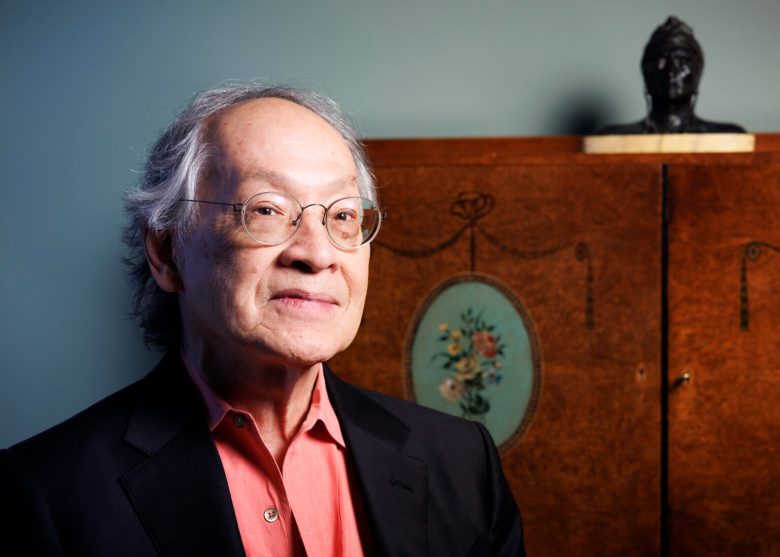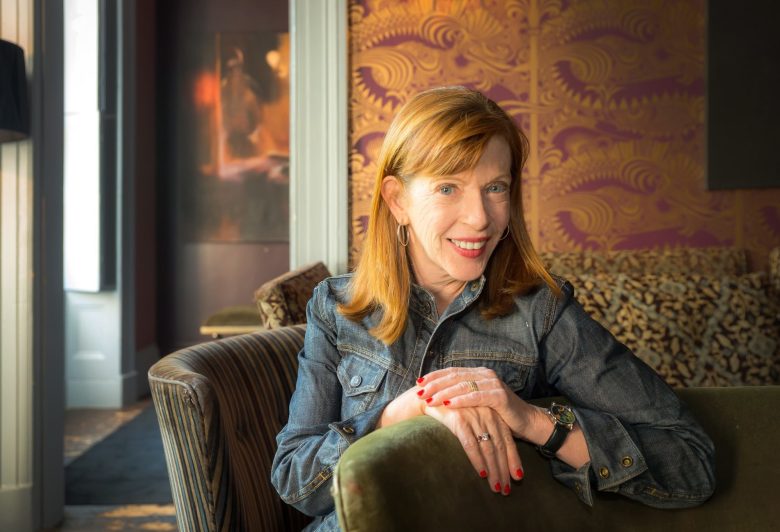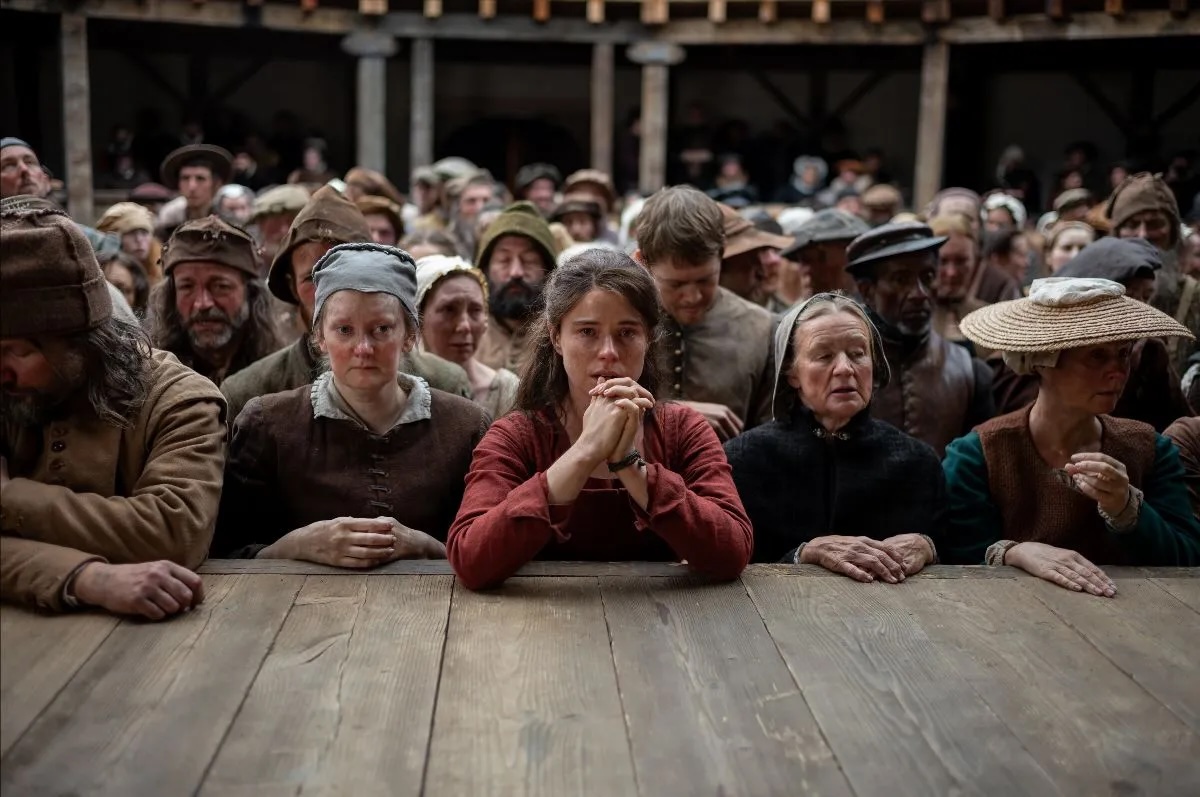
Most of us won’t get to see it until its general release in theaters in December, but the Mill Valley Film Festival is opening on Oct. 2 with “Hamnet,” the Chloé Zhao-directed film based on Maggie O’Farrell’s best-selling 2000 novel, which is, at heart, a compelling romance, a harrowing tale about the ravages of the 16th-century plague and an ingenious origin story about the creation of William Shakespeare’s most famous play. (“Hamnet” and “Hamlet,” by the way, were virtually interchangeable names in Shakespeare’s time.) Previewed to wild acclaim at earlier festivals this year in Telluride and Toronto and already generating Oscar buzz, the film stars Jessie Buckley as the ethereal healer Agnes, who marries Paul Mescal’s William, the young Latin tutor and son of the village glovemaker with the stellar literary career ahead of him. The screenplay was cowritten by director Zhao, who also directed the multi-Oscar-winning “Nomadland” from 2021, and author O’Farrell, who has declared the product of their collaboration “a beauty, from start to finish.” The official trailer is here.

Just appointed: We have a new well-versed guy to hold in high regard in Arthur Sze, 74, of Santa Fe, New Mexico, an author, professor and translator who earned his self-directed bachelor’s degree in poetry at UC Berkeley decades ago. Sze, named by the Library of Congress to a one-year post as the U.S. Poet Laureate, will give his inaugural reading at the Library on Oct. 9. Last December, accepting an earlier award at the Library, he spoke about the crucial role he believes poetry plays in our lives, and in his own. He said poetry “helps us slow down and deepen our attention; it helps us uncover, discover things we didn’t know and things we didn’t know we already knew, things that we couldn’t articulate until we experienced them in a poem. A poem communicates first through sound and rhythm, and it is understood viscerally in the body before it can be articulated by intelligence. Poetry speaks to our deepest selves and connects us all, and it also speaks to the exigencies of our time. Poetry is our essential language, and it is as essential to me as breathing.” Sample a bit of Sze’s poetry here.

What’s that rumbling sound? There have been all sorts of preliminary upheavals in various locations across the Bay, but the official opening night of the popular annual Litquake festival takes place from 7 to 10 p.m. Oct. 9 at the Hawthorn SF Nightclub and Lounge at 46 Geary St. in San Francisco. That’s where local comedian Natasha Muse, assisted by DJ Lead Teddy, will do an extended riff on what ticket buyers have confessed to reading in a program called “(Not So) Guilty Pleasures.” No piece of scurrilous or lowbrow literature, organizers promise, will be deemed unworthy of inclusion, so attendees are encouraged to divulge their deepest secrets for this ticketed event ($55.20 through Eventbrite). The festival continues with many free events through Oct. 25, when it will conclude, as is customary, with the booze-fueled nighttime Litcrawl through Mission District pubs, nightclubs and gathering spots. Founded in 1999, the festival has grown to near-gargantuan proportions, featuring authors and performers aplenty, now at more than 60 venues in San Francisco and the East Bay, including, this year, the San Francisco Botanical Garden and the Maritime Museum in the city and Mrs. Dalloway’s bookstore and the Brower Center for the Performing Arts in Berkeley. Authors and writers by the dozens are scheduled presenters and participants, including Andrew Sean Greer, Ada Limón, Viet Thanh Nguyen, Ingrid Rojas Contreras, W. Kamau Bell, Susan Orlean, Matthew Zapruder, Jane Hirshfield and many more. Find a schedule and more information at litquake.org.

Author alert: Coming to Rakestraw Books in Danville in late October is San Francisco author Rabih Alameddine, whose latest novel, “The True True Story of Raja the Gullible (And His Mother),” just out from Grove Press, seems to bear all the hallmarks that made his most famous novel, 2014’s “An Unnecessary Woman,” so memorable. Chief stock in trade for Alameddine is his wry humor, often expressed in the voice of his characters, as it was in that earlier work with Aaliya Sobhi, the stubbornly independent septuagenarian translator in Beirut resisting pressures on all sides from her family and her society. The narrator in “The True True Story,” also set in Lebanon, is a gay high school philosophy teacher in his sixties who lives with, fiercely loves and is constantly at war with his overbearing octogenarian mother, who assiduously pushes herself into each and every aspect of his life. The novel opens with the dutiful son preparing to, once again, dye his demanding but beloved mother’s hair: “I’d been her designated hair colorist since she’d stop trusting professionals while still in her early forties. She cursed the entire trade when one poor sod mistakenly dyed her hair a deep russet—and he was a poor sod because he was still a young apprentice at the time. He was all she could afford. My father had my mother, all of us, on a strict budget. Every now and then, I would ask if she could sit down on the floor between my legs so I didn’t have to stand while dyeing her hair. She refused, of course. I had to suffer for her elegance, she’d say.” Alameddine will read from the novel at 7 p.m. Oct. 27 at Rakestraw, 3 Railroad Ave., Danville.

On the short list: Six works of fiction have emerged from a group of 13 as contenders for the 2025 Booker Prize, awarded to authors (of any nationality) of books written in English and published in the United Kingdom or Ireland. Announced in London on Sept. 23 by the panel of six judges chaired by Irish author Roddy Doyle, a Booker winner from 1993, the list will be winnowed down to the triumphant entry to be revealed on Nov. 10. This year’s nominees are: “Flashlight,” by Susan Choi, which revolves around the mystery surrounding the disappearance of an academic Korean emigré to America one night in coastal Japan and the impact on his wife and 10-year-old daughter; “The Loneliness of Sonia and Sunny,” by Kiran Desai, about two young people who initially resisted their Indian grandparents’ attempts at matchmaking but years later embarked upon a romance beset by difficulties; “Audition,” by Katie Kitamura, a challenging narrative with three characters — a successful actress, her writer partner and a younger man — that turns and twists as readers’ perceptions of their true relationships changes; “The Rest of Our Lives,” by Ben Markovitz, about a middle-aged man in a troubled marriage who takes off on a solo road trip after dropping his daughter off at college; “The Land in Winter,” by Andrew Miller, concerning two young couples in the British West Country, a doctor, a dairy farmer and their newly pregnant wives whose lives undergo upheaval during a great blizzard and its aftermath; and “Flesh,” by David Szalay, which follows the trajectory of the life of a shy 15-year-old Hungarian boy who moves from a clandestine relationship with an older woman into military service and on into the company of the rich and powerful in 21st century London.
Hooked on Books is a monthly column by Sue Gilmore on current literary buzz and can’t-miss upcoming book events. Look for it here every last Thursday of the month.
The post Hooked on Books: ‘Hamnet’ tells how ‘Hamlet’ came to be appeared first on Local News Matters.
